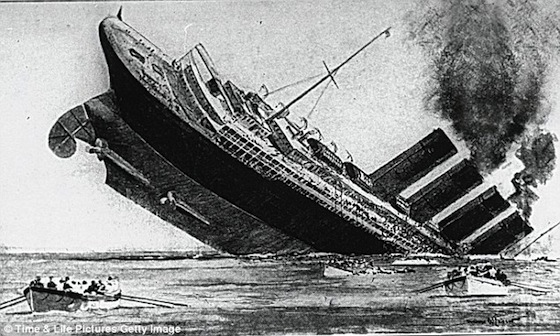One hundred years ago today one of the most shocking acts of the First World War helped set in motion the wholesale internment of “enemy aliens” by the British Government.
More than 1,100 people died when the British ocean liner RMS
Lusitania was torpedoed by the Germans as it sailed from New York to Liverpool on May 7, 1915.

Following mass anti-German riots in Britain (replicated elsewhere in the Empire) the British Government ordered thousands of people born abroad – many of whom had lived in Britain for years – to camps on the Isle of Man on 13 May.
Internment will be under the spotlight at a conference organised by De Montfort University Leicester (DMU)’s History Research Group, in conjunction with Imperial War Museum North.
The event – Internment during the First World War: A Mass Global Phenomenon – takes place on May 13 and 14 in the Imperial War Museum North, Manchester and has been organised to coincide with the centenary of the sinking of the
Lusitania and the consequent introduction of mass internment in Britain.
Professor Panikos Panayi, Professor of European History, said: “The issue of internment during the Great War still seems to be swept under the carpet in the discussion of the First World War commemorations.
“These were issues that were ignored during the First World War but I do not think they should be ignored 100 years later. Minority groups face particular persecution during wartime, especially if any perceived enemy connection existed. As a result, internment took off throughout the world during the conflict.
“This pioneering international conference on internment during the First World War brings together experts from throughout the world to investigate the importance of the conflict for the history of civilian incarceration.”
RELATED NEWS:
*
Talk to our history lecturers at DMU's next open day*
New history module prepares students for life after DMU*
Professor unwraps history of fish and chipsThe conference will examine whether the First World War transformed the use of internment from a small-scale ad-hoc policy to an internationally accepted tactic; the role public opinion played in the policy and the impact it had upon those sent to live in the camps.
Posted on Thursday 7 May 2015